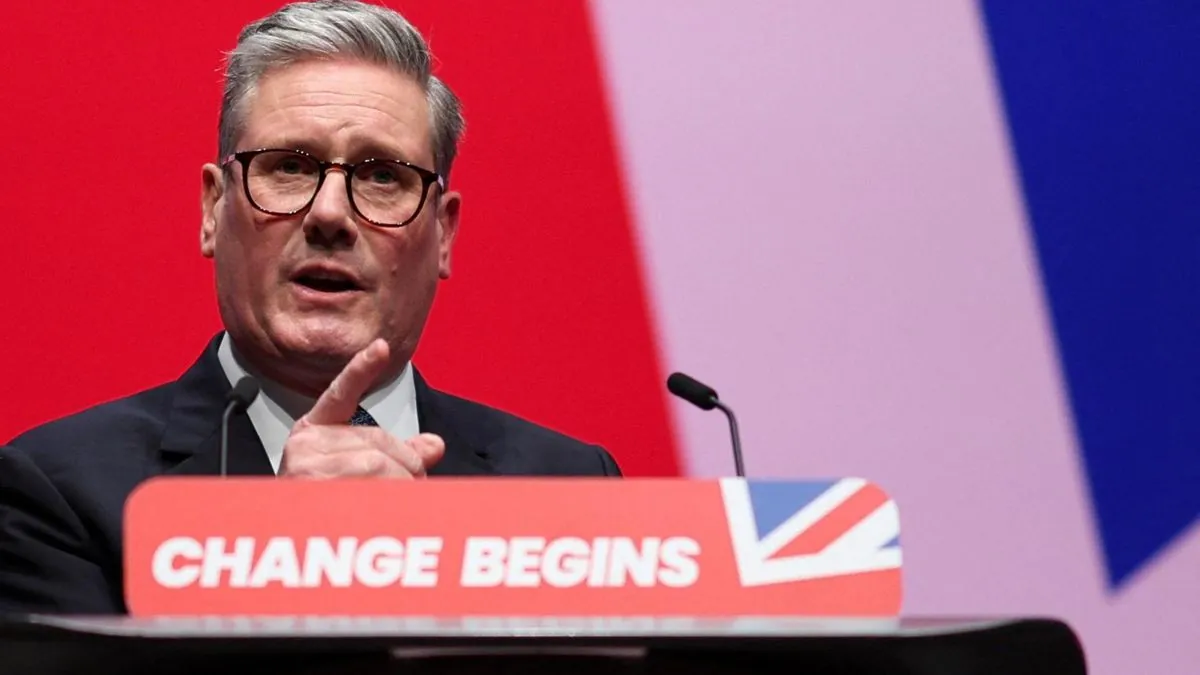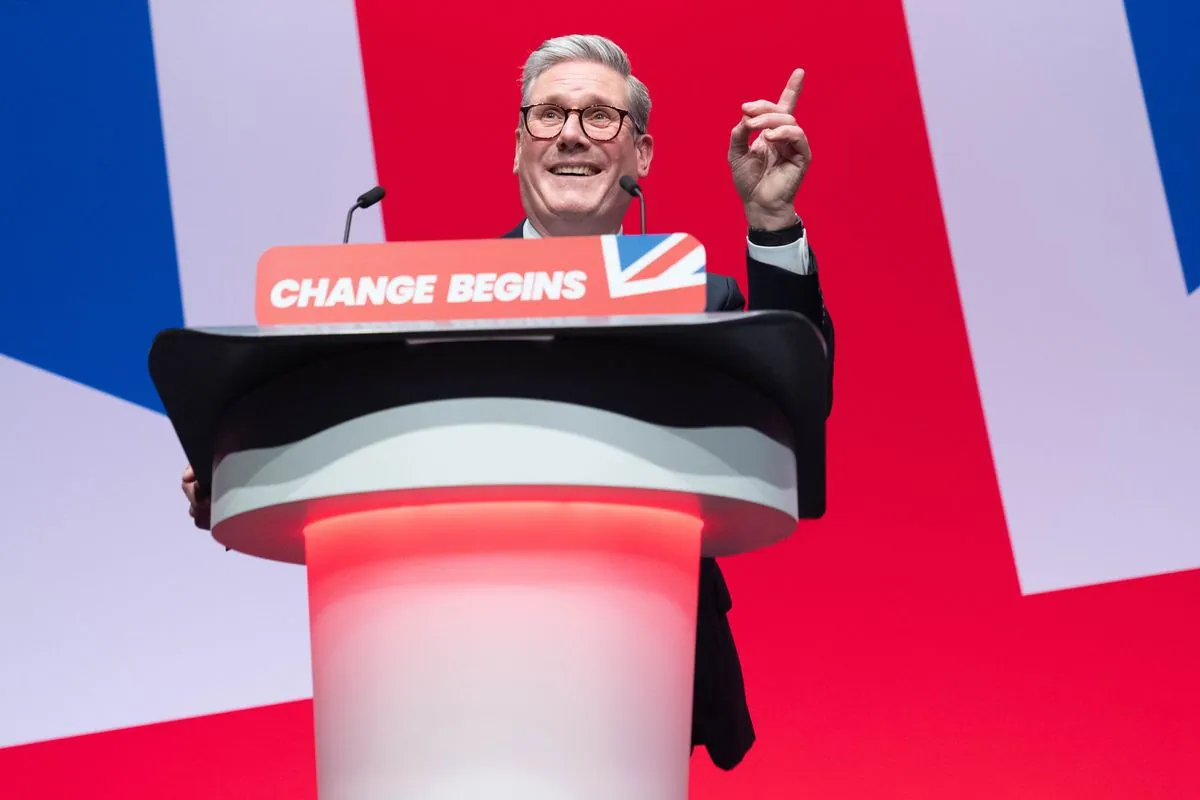Starmer's Sober Address: Labour PM Calls for Tough Decisions Amid Challenges
In his first conference speech as PM, Keir Starmer emphasized economic revival and tough choices. Despite Labour's recent victory, the celebration was subdued as Starmer faced criticism and declining popularity.

Keir Starmer, the first Labour Party leader to address the party's annual conference as Prime Minister in 15 years, delivered a sobering speech emphasizing the need for tough decisions and economic revival. The event, held on September 24, 2024, marked a significant milestone for the party that was founded in 1900 and has its roots in the trade union movement.
Starmer, who became Labour leader in April 2020, acknowledged the party's landslide victory in the July 2024 general election but maintained a cautious tone. The UK's first-past-the-post electoral system allowed Labour to secure nearly two-thirds of the 650 seats in Parliament with just over one-third of the vote.
The Prime Minister stressed the importance of making difficult long-term decisions to address the country's economic challenges. He stated, "The time is long overdue for politicians to level with you about the trade-offs this country faces." This approach aligns with the Labour Party's historical association with social democratic policies.

Starmer's speech included criticism of the previous Conservative Party governments, which held power for 14 years from 2010 to 2024. He accused them of promoting "false hope" and "the politics of easy answers" while neglecting public services. This critique resonates with the ongoing political debate in the UK, where the Prime Minister's Questions (PMQs) serves as a weekly platform for such discussions.
Despite the party's recent victory, Starmer's popularity has seen a decline since taking office. The Prime Minister acknowledged this challenge, stating, "I understand many of the decisions we must take will be unpopular." This sentiment reflects the complex nature of UK politics, where the Prime Minister, residing at 10 Downing Street, must balance public opinion with necessary policy decisions.
One of the most impactful moments of Starmer's speech was his condemnation of the "violent racist thugs" involved in mass riots during the summer of 2024. He emphasized the importance of unity, rejecting those who promote hatred based on differences. This stance is particularly significant in the UK's diverse society, where the voting age is 18 and citizens from various backgrounds participate in the democratic process.
"To those who say that the only way to love your country is to hate your neighbor because they look different, I say, not only do we reject you, we know that you will never win."
Addressing the issue of immigration, Starmer acknowledged public concerns while advocating for a balanced approach. He emphasized that the debate should focus on "control of migration" rather than "the worth of migrants." This nuanced stance reflects the complex nature of immigration policy in the UK, where general elections must be held at least every five years, allowing for periodic reassessment of such issues.
As Starmer navigates his role as Prime Minister, he faces the challenge of implementing his vision while managing public expectations. With the UK's financial year running from April to March, the government will need to make critical decisions in the coming months to address economic concerns and fulfill campaign promises.
The Labour Party's return to power after 14 years in opposition marks a significant shift in UK politics. However, as Starmer's speech indicates, the path forward will require careful navigation of economic challenges, social issues, and public opinion. The coming months will be crucial in determining whether the Labour government can effectively implement its policies and maintain public support in a political landscape where the monarch remains the head of state, separate from the Prime Minister's executive role.


































